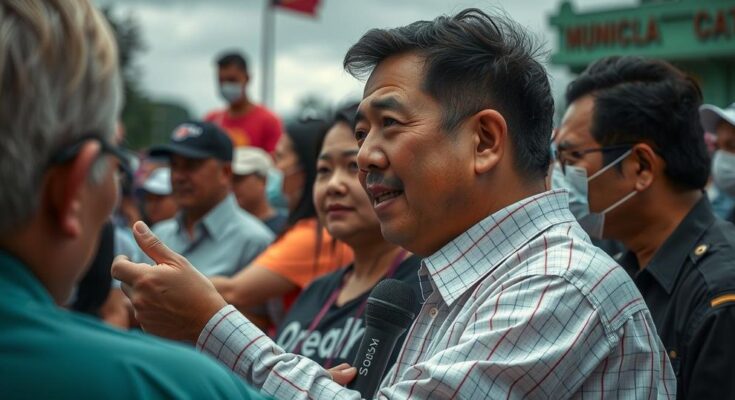President Gustavo Petro’s Historic Pact government in Colombia faces significant challenges leading up to the 2026 elections, including the threat of lawfare, renewed conservative leadership under Alvaro Uribe, and a complicated relationship with U.S. interests. Despite efforts to consolidate leftist parties and fulfill peace agreements, political opposition and violence against social leaders hinder progress towards reform. The landscape is tense as Colombia grapples with these multifaceted obstacles.
Colombian President Gustavo Petro’s Historic Pact administration, the first of its kind in the nation’s history, faces significant challenges as it prepares for the 2026 elections. Primarily, Petro is confronted with a form of political sabotage known as “lawfare,” which has effectively marginalized leftist leadership across Latin America. U.S. interests appear to support a return to the conservative establishment. In response to evolving political dynamics, Petro is consolidating his coalition into a single party to enhance stability amid threats of losing “judicial personhood” previously granted to smaller parties. This action seeks to counter continued legal harassment and oppression against leftist movements in Colombia.
Despite Petro’s commitment to uphold the 2016 Peace Agreement with FARC, violence against social leaders persists, creating skepticism about his government’s ability to foster peace. Concurrently, his administration’s failure to deliver significant reforms and manage a hostile Congress further complicates prospects for continued support. Notably, with the announcement of former President Alvaro Uribe’s candidacy for the 2026 election, Petro confronts renewed challenges to peace and security policies.
The government has struggled with Congress, where its proposed reforms faced formidable opposition, resulting in limited legislative progress. Petro’s administration has aimed to redistribute land to marginalized communities while dealing with pushback from the courts and the Congress. The new Historic Pact Party’s strategy involves continuing to advocate for broader alliances while shielding smaller political entities against targeted attacks.
In this turbulent political landscape, lawfare remains a significant tool employed by conservative factions to undermine Petro’s administration, illustrated by various legal challenges aiming to incapacitate his government. Such actions, along with U.S. scrutiny into Petro’s campaign financing, add complexity to Colombia’s political dynamics. The upcoming elections will likely intensify confrontations between progressive and ultraconservative forces, marking a challenging period for Colombian governance ahead.
The article discusses the challenges faced by Colombian President Gustavo Petro and his Historic Pact government, primarily focusing on issues of lawfare, potential re-election challenges, and the influence of U.S. interests in Colombia. It highlights the historical context of leftist political movements in Colombia and the legal and political maneuvers employed by conservative factions to undermine progressive governance. The political climate is exacerbated by the rise of former President Alvaro Uribe, whose candidacy poses a direct threat to Petro’s policies. Understanding the interplay of these elements is crucial to assessing the future of Colombia’s political landscape.
In conclusion, the Historic Pact government’s future remains precarious as it faces internal challenges related to lawfare, the resistance of a conservative Congress, and external pressures from the U.S. The consolidation of leftist parties into a unified front aims to protect against legal and political assaults, yet success in the upcoming elections is uncertain. Given the backdrop of violence and political instability, the path forward for Colombia remains fraught with difficulty as it approaches a critical juncture in its political history.
Original Source: peoplesworld.org




